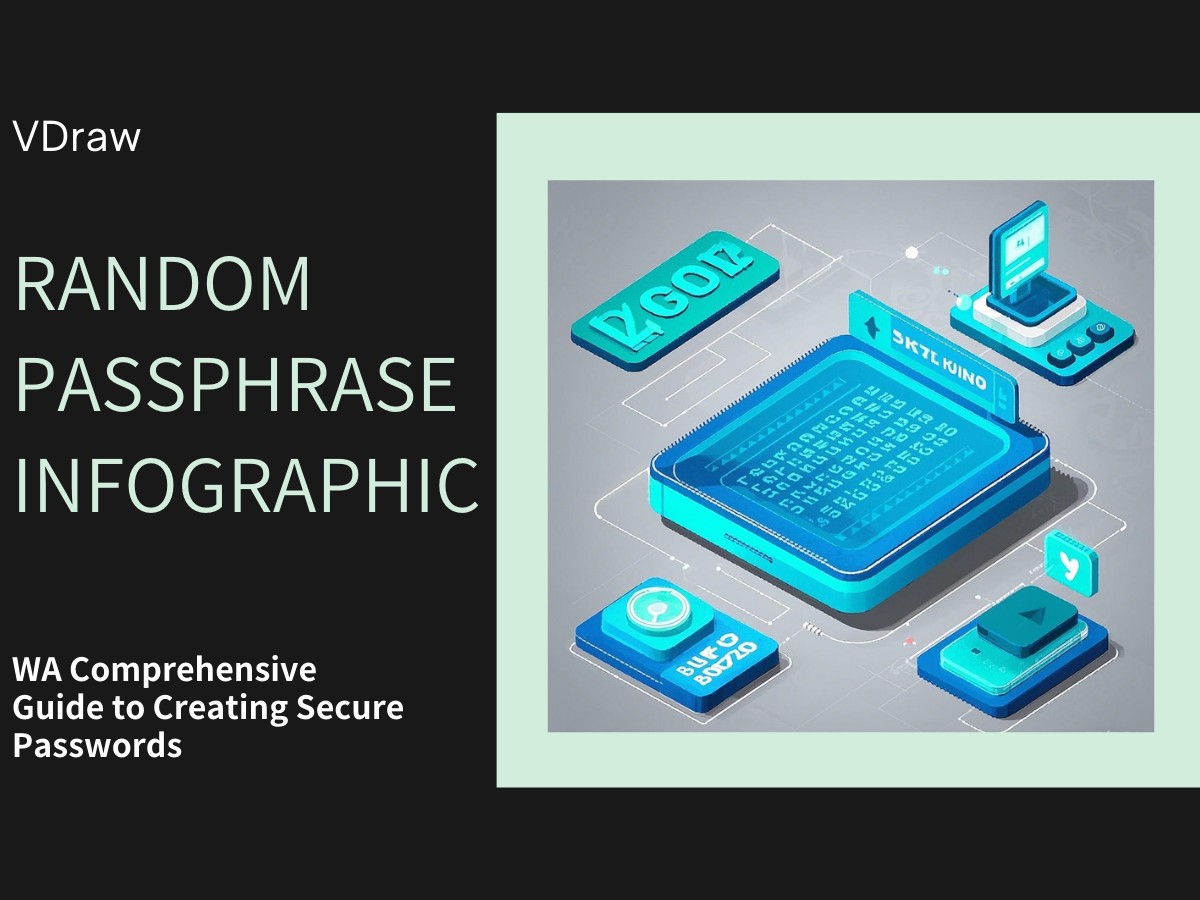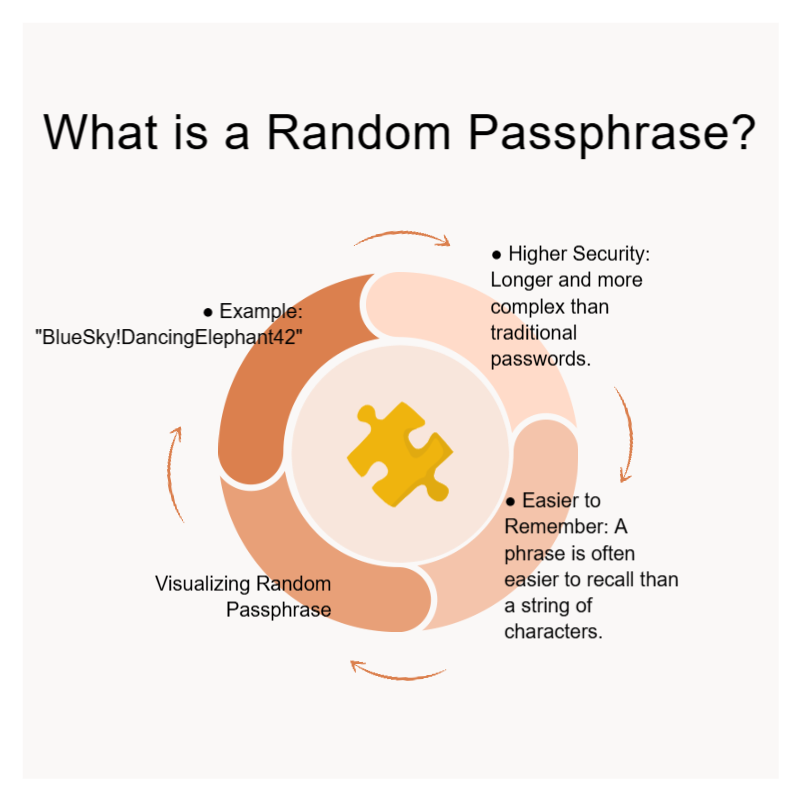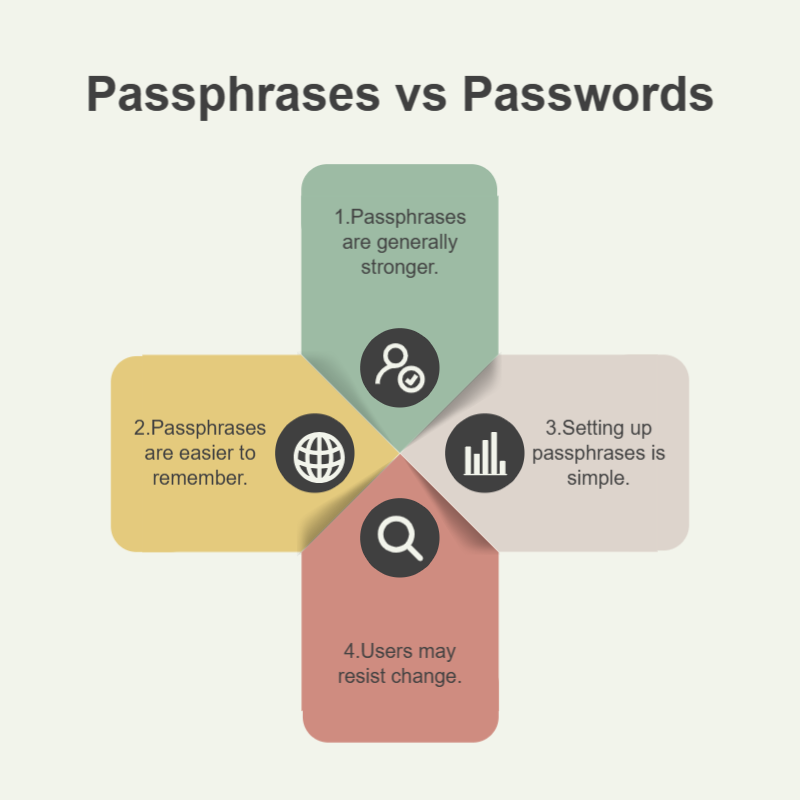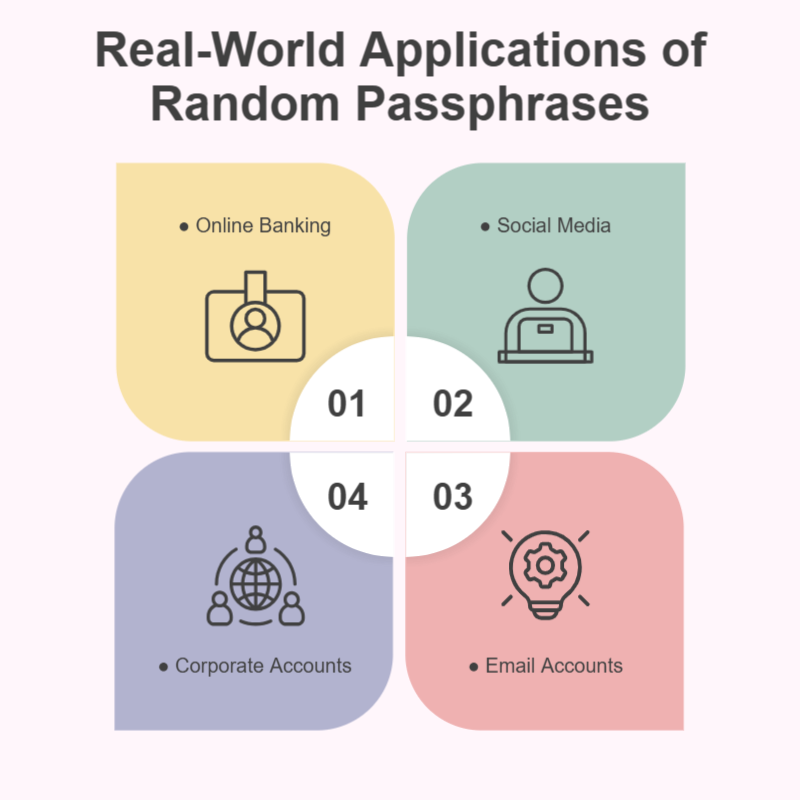
In today's digital world, password security is crucial. With the rise of cyber threats, having a strong password is no longer just a recommendation; it’s a necessity. One effective way to enhance online security is by using a random passphrase. Unlike traditional passwords, a random passphrase combines multiple words into an easy-to-remember yet secure string. In this article, we will explore the importance of random passphrase infographics, how to create AI Infographic Generator, and how tools like VDraw can help you visualize this information beautifully.
What is a Random Passphrase?
A random passphrase is a sequence of multiple random words that makes it easier to remember while being hard for others to guess.

This infographic was created using VDraw AI Infographic Generator
- Example: "BlueSky!DancingElephant42"
Benefits of a Random Passphrase:
- Higher Security: Longer and more complex than traditional passwords.
- Easier to Remember: A phrase is often easier to recall than a string of characters.
Visualizing Random Passphrase:Creating an engaging random passphrase infographic can illustrate the concept of a random passphrase, making it easier for your audience to understand its significance in enhancing security.
Why Use a Random Passphrase?
Using a random passphrase has several advantages over traditional passwords:
Enhanced Security
The longer the password, the higher the security. A random passphrase can be significantly longer than a typical password, making it harder for attackers to crack.
Reduced Forgetting
Phrases are typically easier to remember than random strings. By using familiar words, users can create memorable phrases that are still secure.
Flexibility
A random passphrase can be customized to fit personal preferences, allowing users to include meaningful words that make sense to them, enhancing recall.
Infographic Example: You can create a random passphrase infographic comparing traditional passwords with random passphrases, highlighting their pros and cons.

This infographic was created using VDraw AI Infographic Generator
How to Create a Strong Random Passphrase
Creating a strong random passphrase involves several steps:
Choose Random Words
Select four or more unrelated words. The more unrelated the words, the stronger the passphrase.
- Example: "Apple, Car, Mountain, Sky"
Add Complexity
Include numbers and special characters to increase complexity.
- Example: "Apple!Car#Mountain42Sky"
Test Strength
Use a password strength checker to ensure security. Many online tools can evaluate the strength of your passphrase.
Functionality: Allowing you to generate a random passphrase infographic that visually outlines these steps provides users with a clear guide.
Common Mistakes to Avoid
When creating a random passphrase, it’s essential to avoid common mistakes:
Using Common Phrases
Avoid clichés or easily guessable phrases. Phrases like “password123” or “letmein” should be strictly avoided.
Reusing Passphrases
Each account should have a unique random passphrase. Reusing passphrases across different accounts increases vulnerability.
Ignoring Length
A longer passphrase is generally more secure. Aim for at least 12-16 characters for optimal security.
Real-World Applications of Random Passphrases
Random passphrases are not just theoretical; they have practical applications in the real world, including:
- Online Banking
Using a random passphrase can significantly enhance the security of financial accounts, preventing hacking and account theft. By setting a complex and unique random passphrase, users can effectively protect their funds and transaction information.
- Social Media
On social platforms, the security of personal information is vital. A random passphrase can effectively prevent unauthorized access, safeguarding user privacy and social interactions.
- Email Accounts
Email is the gateway to many online services; using a random passphrase can prevent hackers from resetting passwords on other accounts through email.
- Corporate Accounts
For businesses, protecting sensitive data and customer information is crucial. A random passphrase can provide an additional layer of security for employee accounts, ensuring company information is not leaked.

This infographic was created using VDraw AI Infographic Generator
Clear visual content can greatly enhance understanding efficiency. Using VDraw for live graphics, which is AI-driven professional design, allows for the quick generation of high-quality charts, especially suitable for technical content. It also supports customization and branding.
Tools for Creating Random Passphrases
There are various tools available that can help you generate strong random passphrases:
- Online Generators
Many websites offer free random passphrase generators. These tools can create secure passphrases based on your specifications.
- Password Managers
Password managers not only store your passwords but can also generate strong random passphrases for you. They often include features to automatically fill in passwords on websites.
Mobile Apps
There are mobile applications designed specifically for generating and managing passwords. These apps often come with additional security features.
Best Practices for Using Random Passphrases
To maximize the effectiveness of your random passphrase, consider the following best practices:
Regularly Update Passphrases
Change your random passphrase periodically, especially for sensitive accounts.
Enable Two-Factor Authentication
Whenever possible, enable two-factor authentication (2FA) for an added layer of security.
Keep a Backup
Store your random passphrase securely, whether in a password manager or a physical location. Ensure you have a way to recover it if forgotten.
Conclusion
In conclusion, using a random passphrase is one of the best methods for protecting online accounts. While creating an informative random passphrase infographic, you can clearly and engagingly explain the concepts and benefits of random passphrases. With tools like VDraw, you can not only learn about the creation process and real-world applications but also visualize this critical information in an easy-to-understand and shareable manner.
Remember, the deeper your understanding of password security, the better protected you are in the digital world. Start creating stunning random passphrase infographics today to help yourself and others understand the importance of random passphrases!